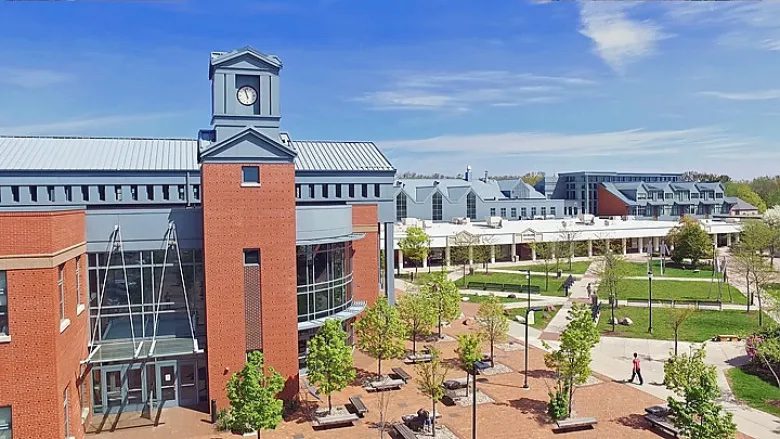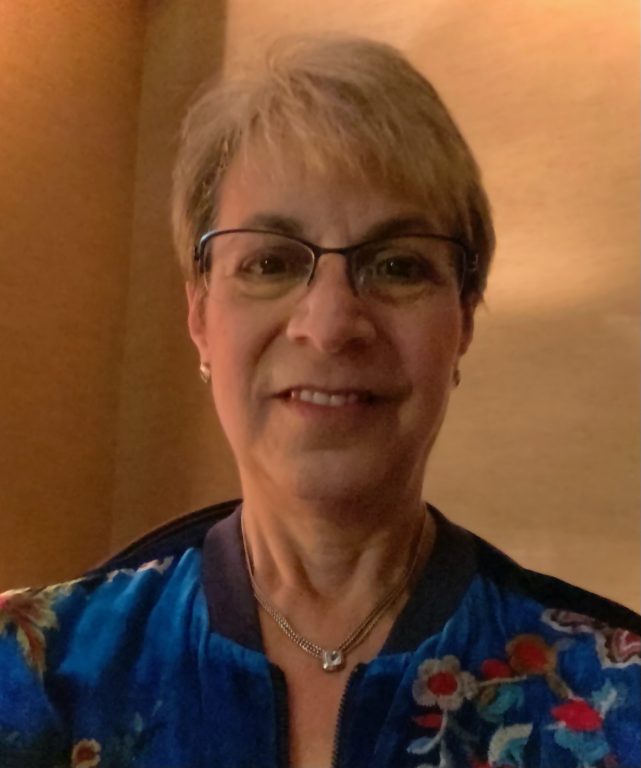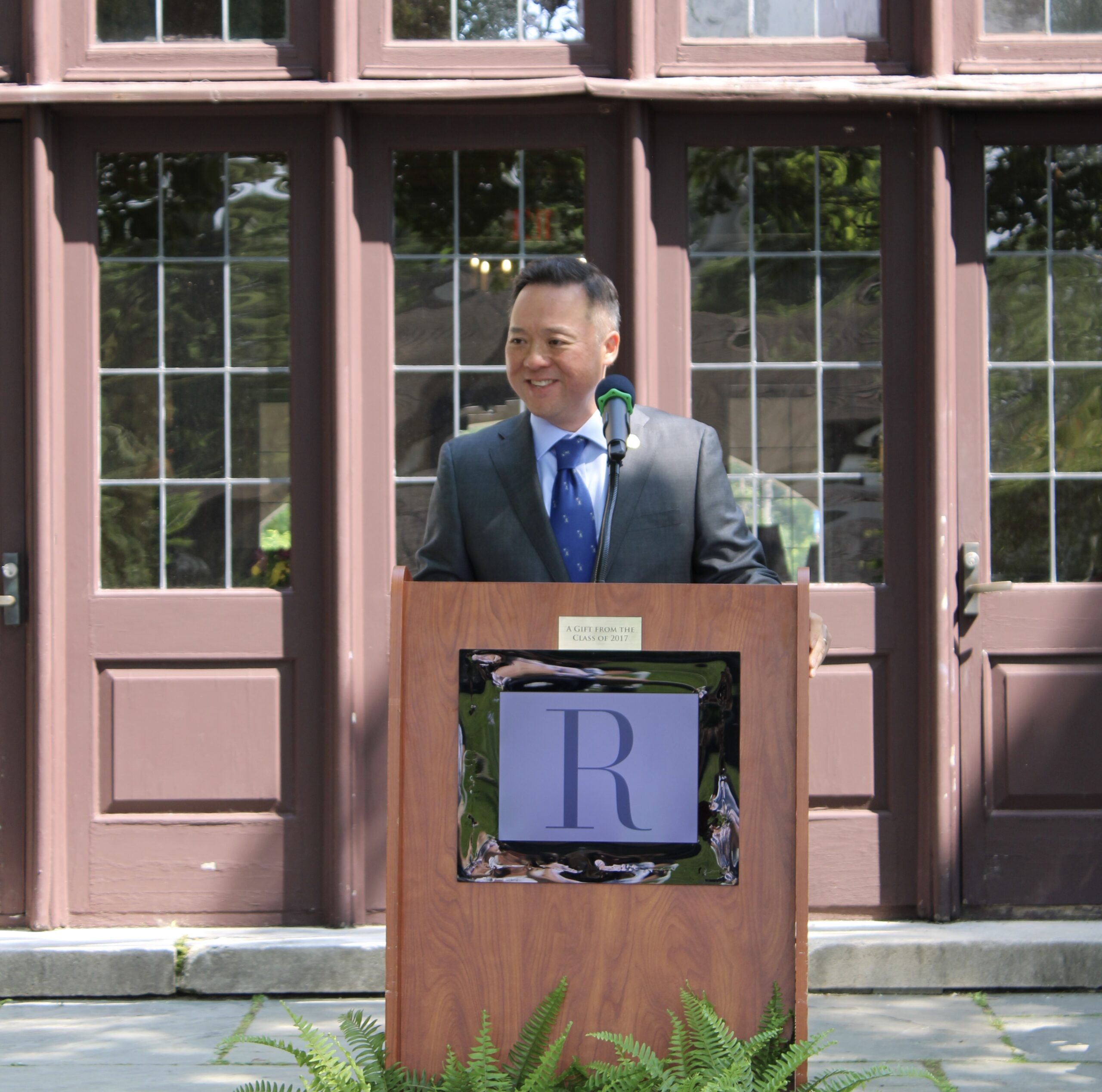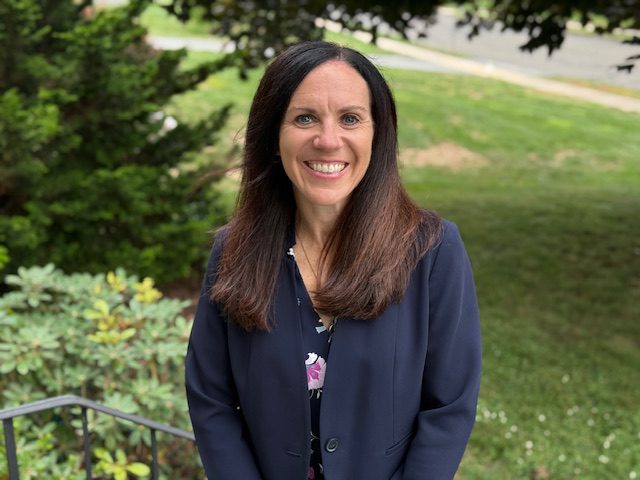College Bound: Connecticut State Community College Est Arrivé!

Audio By Carbonatix

Tunxis Community College. Courtesy of CTNewsJunkie.com
We-Ha.com will be publishing a series of essays/blogs/reflections on the issue of going to college – primarily a set of thoughts and musings, along with some practical advice, intended to support students and parents as they embark on this journey. While many of our readers are experts in this topic, many others are less knowledgeable and have little outside support. We hope this is helpful to all readers as they go through the various stages of getting into and getting something out of college.

Adrienne Leinwand Maslin. Courtesy photo
By Adrienne Leinwand Maslin
This article was written with assistance from Charlene Tappan, Connecticut State Community College, Marketing.
Much like the arrival of Beaujolais Nouveau in November of each year, the opening of Connecticut State Community College on July 1, 2023 has been anticipated for quite some time. And much like the “vin de primeur” or “nouveau” wines – wines that are released in the same year they are harvested – that are met with joy as well as skepticism among wine connoisseurs, there are mixed emotions surrounding the arrival of our new state community college.
On July 1, Connecticut’s 12 community colleges will be consolidated into one entity with 12 campuses known as Connecticut State Community College. The process of consolidation has been lengthy and difficult. As a retiree of Middlesex Community College I understand the pain this merger has caused many employees. I also understand the many benefits that should accrue to the students who attend, no matter which campus they study at. (And some may, quite possibly, study at more than one.)
Whether you are for or against the merger or just don’t care either way, community colleges are institutions to be treasured and lifted up and, certainly, should never be overlooked as you plan your educational journey.
When I was growing up in the 1960s, community colleges were frequently seen as the last resort for students whose high school grades did not allow them to attend a four-year college or university. Not so today. Community colleges are vibrant institutions of higher learning that offer degree programs in the liberal arts and sciences and provide pathways to specific careers.
There are a number of community college students you may have heard of: Tom Hanks (actor), Eileen Collins (astronaut), Steve Jobs (founder of Apple), Arnold Schwarzenegger (actor, governor), George Lucas (film director), Ross Perot (businessman, presidential candidate), Dr. Craig Venter (biologist who participated in sequencing the human genome), Beverly Cleary (children’s author), Dolores Huerta (co-founder United Farm Workers), Robin Williams (actor, comedian). Obviously, the number of successful former community college students and graduates you haven’t heard of exceeds the above list by a factor of something very, very, very large!
Community college graduates are found in every profession and in all walks of life, and no matter what career you wish to pursue, you can probably find a program in that discipline offered at one or more of the campuses of Connecticut State Community College. And if you don’t yet know what career piques your interest, our state community college and its regional campuses have an excellent staff of career counselors to assist you.
So who attends community colleges? According to the Community College Research Center (CCRC) at Teachers College, Columbia University, nationwide 8.9 million students were enrolled in community colleges in 2020-21. That number represents 41% of undergraduate students. The number of students at community colleges dropped precipitously during the pandemic – in fall 2021 about half the number of students attended community colleges or 4.5 million which, in that semester, represented 29% of undergraduates – but recent numbers reflect a leveling off.
Again referring to the 2020-2021 academic year, the CCRC cites these demographics regarding race: 7% Asian, 12% Black, 26% Hispanic, and 44% white. Forty-two percent of all Asian undergraduates were enrolled in community colleges during that academic year, 40% of all Black undergrads, 51% of Hispanic undergrads, and 39% of all white.
Once the CT State merger is complete, it will seek a designation as a Hispanic-Serving Institution (HSI). As defined by the US Department of Education, an HSI is a college or university whose enrollment comprises more than 25% Hispanic/Latino students. Prior to the merger, Capital, Gateway, Naugatuck Valley, and Norwalk Community College were designated as HSIs.
So who attends community college in our state? At Middlesex the range of students was extraordinarily broad. Although the majority of students were either traditional college aged (18-25) or just older (25-40), we had students as young as 13 and as old as 85! Many community college students are what are known in the industry as “first-time, full-time” students. That is, they are attending college for the first time in their lives – most likely, but not necessarily, straight out of high school – and they are taking a full course load. Many others, however, do not fit this mold. There are just as many students, probably more, who attend part-time. Most of these students work either a part-time or full-time job to support themselves, their families, and their education.
Some of our students transfer to four-year colleges and universities upon graduation. Just as many enter the workforce. Those who do, may eventually resume their education and earn a bachelor’s degree at a later point in their lives.
Many of our older students return to school with some hesitation; concerned that their study skills are not as finely honed as those of younger students and fearful they won’t be able to succeed academically. For these students, and for any student having academic difficulty, our campuses have tutoring centers that offer group or individual tutoring, and provide study skills workshops—at no extra charge.
Not every student who attends a community college wants to earn a degree. Some enroll in the many certificate programs offered for academic credit. Certificate programs are shorter in length than associate degree programs, do not require the usual number of general education courses, and serve the purpose of helping students acquire skills that might be required for a particular career. Connecticut State Community College offers non-credit programs as well. These programs help students enter directly into the workforce – in jobs such as EMTs, pharmacy technicians, manufacturers, real estate agents, and many more.
Some community college students have already earned their bachelor’s degree. They are attending to take a particular course or acquire a skill that is needed for their career. And many students attend in order to switch careers. Since these students already have an undergraduate degree they take only those courses necessary to make them competent in their new field of choice. Still other students take a course here and there purely to satisfy an interest.
Many students who consider attending a community college do so because it is typically convenient. It is part of the local community and, therefore, relatively close by. Even so, some students have difficulty, for a host of reasons, commuting to even a nearby college. Therefore, many community colleges, and certainly the campuses of CT State Community College, have robust offerings of online classes. While not everyone feels comfortable learning in this manner for those who do it is a viable alternative to attending class in person at an appointed day and time.
In the hierarchy of higher education, community colleges are the least expensive. A full-time student – which means you are taking 12 credits or more – at CT State Community College will pay $4,736 for the fall and spring semesters (2023-2024). This rate includes tuition and fees for the two regular semesters. It does not include winter or summer sessions. (For a refresher on college costs, please see my Feb. 21, 2022 article in we-ha.com. Because of the low cost, community colleges attract students who simply want to save money during their first two years of college. First-time college students may be able to cut their education costs even more by taking part in the debt-free college plan, known as PACT. Connecticut high school graduates who enroll in a degree or credit-bearing certificate program may be eligible for free college. The first step is to complete the Free Application for Federal Student Aid (FAFSA), which is used to package federal, state, and often institutional aid. Even if a prospective student does not think they will qualify, they should still complete the FAFSA.
A multitude of opportunities exist for CT State Community College students to transfer to four-year institutions. Transfer articulation agreements, if followed in their entirety by the student, provide seamless transfer to the University of Connecticut, the Connecticut State University system, and many private colleges both in- and out-of-state. Connecticut’s four-state universities and Charter Oak State College have partnered with the community colleges to make transferring for a bachelor’s degree as seamless as possible. Known as Transfer Tickets, the program allows students to complete the first two years of their bachelor’s degree at the community college and then transfer in-state, without needing to take additional credits or incur additional costs.
It is the most affordable way to earn a bachelor’s degree in Connecticut. And while Connecticut has two excellent state supported university systems, community college students in our state also transfer to private institutions, both in- and out-of-state. At Middlesex, I worked with students who transferred to Wesleyan University on full tuition scholarships, Yale, Quinnipiac, the University of Hartford, Connecticut College, the University of New Haven, and others in our state. I also helped students transferring to UVM, University of New Hampshire, and universities in New York, Florida, Massachusetts, and in the western part of the U.S.
In case I haven’t made my point clearly enough, community colleges serve a broad array of people – ethnically and racially diverse, diverse in terms of age, diverse in terms of goals. Community colleges strive to be part of the community in which they are located and try their best to serve their community. Community college students are among the brightest you can find anywhere and they transfer to a wide range of four-year institutions, even those considered “elite.” We are fortunate to live in a state where the opportunities for those seeking higher education are broad and varied. Don’t forget to include Connecticut State Community College among your choices.
Adrienne Leinwand Maslin recently retired from a 45-year career in higher education administration. She has worked at public and private institutions, urban and rural, large and small, and two-year and four-year, and is Dean Emerita at Middlesex Community College. She has held positions in admissions, affirmative action, president’s office, human resources, academic affairs, and student affairs. Maslin has a BA from the University of Vermont, an MEd from Boston University, and a PhD from the University of Oregon. She is presently creating a TV/web-based series on life skills and social issues for 9-12 year olds believing that the more familiar youngsters are with important social issues the easier their transition to college and adulthood will be. Information about this series as well as contact information can be found at www.shesroxanne.com.
Like what you see here? Click here to subscribe to We-Ha’s newsletter so you’ll always be in the know about what’s happening in West Hartford! Click the blue button below to become a supporter of We-Ha.com and our efforts to continue producing quality journalism.



